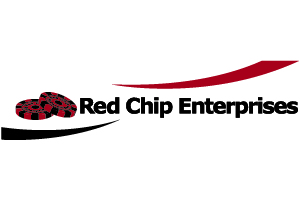SPONSORED CONTENT
The term “specialty medication” is often associated with a hefty price tag and numerous challenges related to claims processing. While this may be true in certain circumstances, organizations providing or considering offering specialty medications can still successfully navigate these complexities with the right strategies in place. Below are key areas to focus on for success in claims processing for specialty medications.
Prior Authorization: A Critical First Step
Many specialty medications require prior authorization from the payer before they can be dispensed to the patient. However, this process can be tedious and complex. Different insurance companies have varying requirements for prior authorization, and staying on top of these evolving policies can be a challenge. It’s essential for organizations to regularly update their knowledge of payer-specific protocols and ensure they have an efficient process in place for submitting prior authorization requests. Delays in securing prior authorization can result in disruptions to treatment, which can hinder a patient’s ability to receive timely care and further delay reimbursement for the medication. A streamlined system that ensures timely submission and accurate documentation can help avoid unnecessary roadblocks.
Simplifying the Complex Billing Process
The billing process for specialty medications is notoriously complex. Claim requirements vary by payer and medication, which means that having a team familiar with each payer’s approach to processing claims is critical. It’s also crucial to understand the unit and dollar limits within each payer’s system, as not all systems are capable of processing claims with a high volume of units or large dollar charges in a single submission. Without a deep understanding of payer-specific nuances, organizations will struggle with accurate billing and reimbursement. A dedicated billing team that keeps current with payer policies and knows how to navigate the complexities of high-cost drug billing can significantly reduce errors and improve reimbursement timing.
Managing Payment Delays
Payment delays are another obstacle in the claims process. Payers can take a significant amount of time to process claims, and during that time, they may request the same supporting documentation multiple times. Even though the necessary documents were included with the initial claim submission, these repeated requests can cause additional delays in reimbursement and strain the overall process. Having an organized documentation system can streamline communication and reduce delays caused by missing or incomplete information.
Another way to mitigate payment delays is by building strong relationships with payer representatives, who can help expedite the process and resolve any issues. Additionally, having a team of billing experts who can educate payers on the patient’s diagnosis and treatment plan and clearly explain how claims should be processed according to the terms of the provider’s contract can greatly improve the chances of faster and more accurate reimbursement.
Preparing for Post-Payment Audits
Once a claim has been paid, payers may conduct post-payment audits to ensure that all documentation is in order. If a payer requests additional information or supporting documentation for a previously paid claim, failure to provide it can result in payments being retracted. To avoid this, it is essential to keep every piece of supporting documentation well-organized and easily accessible. By ensuring that all documentation is complete and accurate, organizations can reduce the risk of payment retraction and maintain financial stability.
Conclusion
While claims processing for specialty medications is challenging, there are clear steps organizations can take to overcome these hurdles. From managing prior authorization and claim denials to staying current on evolving billing guidelines and building strong relationships with payers, organizations that approach these challenges strategically will see greater success. If your organization needs assistance navigating the complexities of specialty medication claims, Red Chip’s experienced reimbursement team is here to help!

Cindy Vail is Director of Billing and Collections at Red Chip of Nevada, a nationally recognized specialty pharmacy and acknowledged leader in billing and collecting claims for high-dollar medications and Gene Therapies. She may be contacted at cvail@redchip.org.



